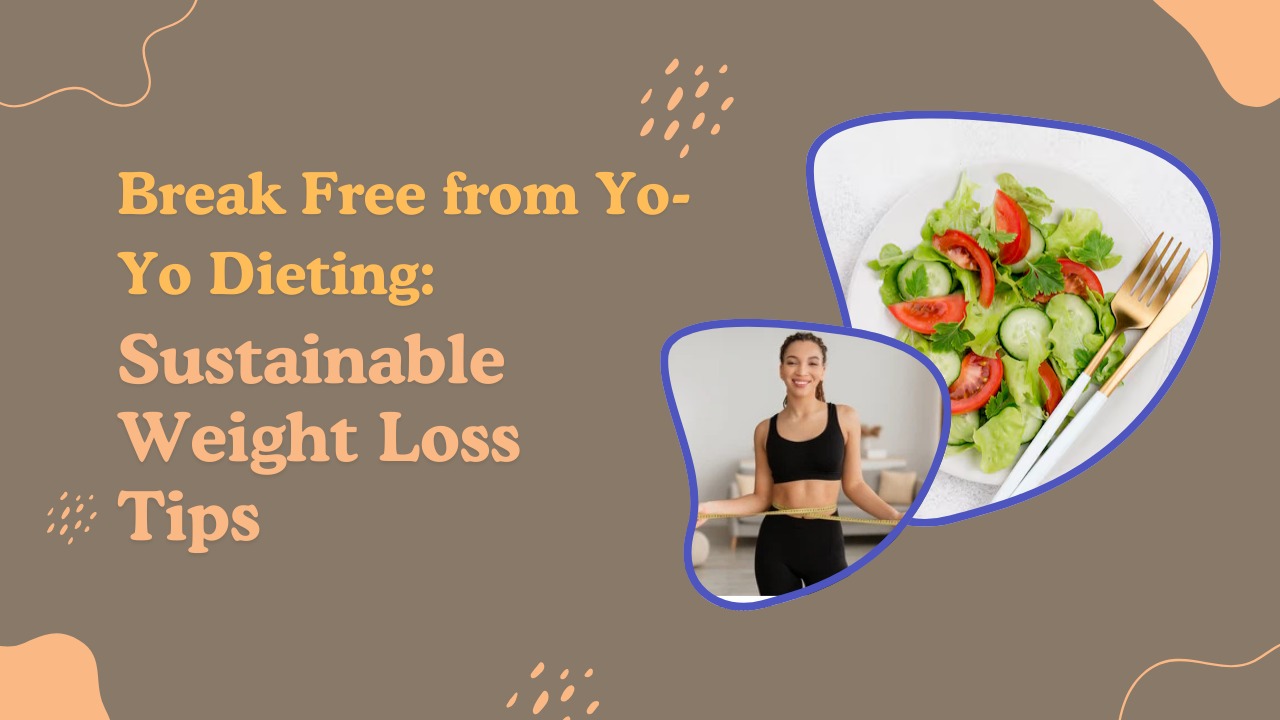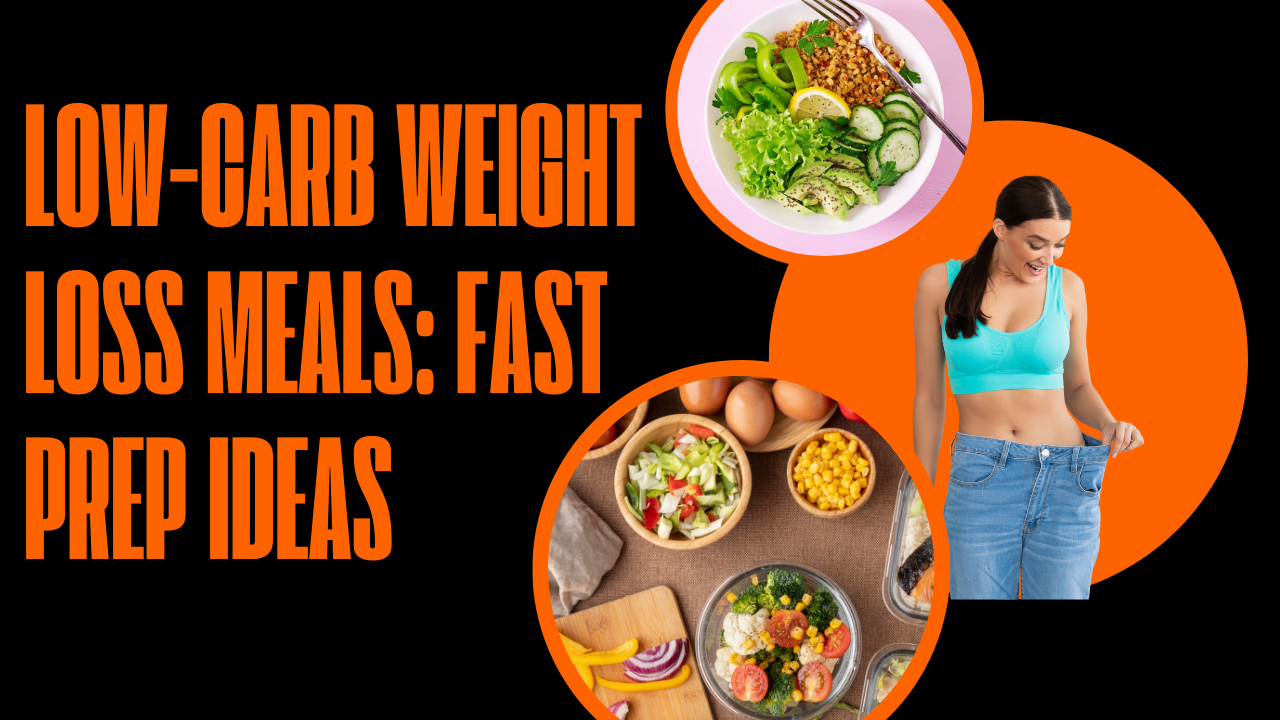Weight loss is a common goal, but it’s often misunderstood and filled with myths. Achieving weight loss isn’t just about following the latest fad diets or extreme workouts—it requires patience, consistency, and the right approach. With so much conflicting information available, it’s hard to know where to start.
At its core, weight loss happens when you burn more calories than you consume. However, successful and lasting weight loss is about more than just counting calories. It involves making smarter choices, developing healthy habits, and finding the right balance for your unique body.
This article aims to clear up some common myths about weight loss and provide you with the facts. Understanding what really works and what doesn’t will help you make informed decisions on your journey to healthier living.

Why Weight Loss Matters
Weight loss is often tied to appearance, but maintaining a healthy weight is crucial for overall health and well-being. Achieving and keeping a healthy weight helps lower the risk of developing chronic conditions such as heart disease, diabetes, and high blood pressure.
Even losing a modest amount of weight—about 5–10% of your body weight—can lead to significant improvements in your health. It can enhance energy levels, improve mobility, and reduce the chances of serious health issues over time. Focusing on weight loss isn’t just about aesthetics; it’s about making lasting changes to support better health and prevent the onset of diseases. A healthy weight is an essential part of living a long, active, and fulfilling life.
Here are a few reasons why weight loss can be crucial for your health:
Reduced Risk of Chronic Diseases
Excess weight, particularly when stored as body fat, is a significant risk factor for a range of chronic health conditions. These include type 2 diabetes, heart disease, high blood pressure, and even certain types of cancer. Carrying extra weight can negatively affect cholesterol levels and the functioning of vital organs, making the body more susceptible to these diseases. By losing weight, you can lower the risk of these conditions, improve your cholesterol levels, and promote better heart health, contributing to a longer, healthier life.
Improved Mental Health

Weight loss benefits go beyond physical health and can positively impact mental well-being. Achieving a healthy weight can improve mood, boost self-esteem, and increase confidence. Engaging in regular exercise and adopting a balanced diet also support brain health, enhancing cognitive function and helping reduce symptoms of anxiety and depression. These changes lead to a more positive outlook, improved emotional resilience, and better overall mental health.
Enhanced Mobility and Quality of Life
Excess weight places unnecessary strain on joints, particularly in areas like the knees and hips, causing discomfort and stiffness. This can limit your ability to perform everyday activities and enjoy physical exercise. By losing weight, you reduce the pressure on your joints, easing pain and improving mobility. Additionally, reaching and maintaining a healthy weight boosts energy levels, making it easier to stay active and engage in daily tasks, which improves overall quality of life and physical wellness.
Improved Sleep and Hormonal Balance
Being overweight or obese can lead to sleep disorders like sleep apnea, where breathing repeatedly stops and starts during sleep. This interrupts rest and affects overall health. Weight loss can help reduce the frequency and severity of sleep apnea, leading to better quality sleep. Furthermore, losing weight helps regulate hormones that control appetite, metabolism, and insulin production, which are essential for managing hunger and maintaining energy levels. This hormonal balance also aids in better metabolism and less risk of developing insulin resistance.
Weight loss is about more than just looking good; it’s about feeling better and living a healthier life. Understanding the difference between facts and myths is essential to avoid falling for quick-fix diets and unsustainable methods, helping you achieve lasting results and overall well-being.
Common Weight Loss Myths vs. Facts
With so much information available, it’s easy to become overwhelmed by the latest weight loss trends and fads. These quick solutions can often lead to confusion and frustration. To help you navigate through the noise, we’ll break down some of the most common myths surrounding weight loss and provide the essential facts you need to make informed and healthier choices on your journey. By understanding what really works and what doesn’t, you’ll be better equipped to make sustainable decisions that support your long-term goals.
1. Myth: Losing Weight Fast Is the Best Way to Do It
Fact: Slow, Sustainable Weight Loss is Healthier
We’ve all come across weight loss programs or products that promise rapid results, such as losing 10 pounds in a week. While these claims may sound appealing, losing weight too quickly can be detrimental to your body. Rapid weight loss often leads to muscle loss, nutrient deficiencies, and can even slow down your metabolism. When you shed pounds too fast, your body doesn’t have enough time to adjust, making it harder to maintain the weight loss. This can result in regaining the weight quickly once the drastic diet or exercise plan is no longer sustainable.
The healthiest and most effective way to lose weight is through gradual, steady progress, aiming for 1-2 pounds per week. This slower approach allows your body to burn fat while preserving lean muscle mass, which is important for overall health and metabolism. Additionally, slow weight loss gives you the time to develop healthier eating habits and exercise routines that become sustainable lifestyle changes. These habits will support your weight loss journey in the long term and help you maintain your results without the risk of regaining the weight.
2. Myth: Carbs Are the Enemy of Weight Loss

Fact: Not All Carbs Are Created Equal
Carbohydrates have been vilified in many weight loss circles, thanks to popular low-carb diets like keto and Atkins. But not all carbs are bad. Carbs are an essential source of energy, and eliminating them completely can lead to nutrient imbalances.
The key is understanding the difference between good carbs and bad carbs. Simple carbs, found in sugary snacks, soda, and white bread, can cause blood sugar spikes and promote fat storage when consumed in excess. On the other hand, complex carbs from whole grains, vegetables, and fruits are rich in fiber, which keeps you feeling full and satisfied, helps regulate blood sugar, and supports digestive health.
Rather than cutting carbs out entirely, focus on eating nutrient-dense, fiber-rich carbs. Whole grains like oats, quinoa, and brown rice are great choices. This will keep you fueled without the energy crashes associated with refined carbohydrates.
3. Myth: You Have to Exercise for Hours to Lose Weight
Fact: Diet Is More Important Than Exercise for Weight Loss
Many people believe that losing weight requires hours of intense exercise at the gym every day. While exercise is certainly beneficial for overall health and helps burn additional calories, the reality is that diet plays a far more significant role in weight loss.
To successfully lose weight, you need to create a calorie deficit, meaning you burn more calories than you consume. While exercise can contribute to burning extra calories, the choices you make regarding what and how much you eat will have a much greater impact on your weight loss journey. Making healthier food choices, managing portion sizes, and cutting back on calorie-dense foods like sugary treats and fried foods are some of the most effective ways to reduce your overall calorie intake.
Exercise is still important, though. It helps to build muscle, boost metabolism, and improve overall physical fitness. However, you don’t need to spend hours at the gym to see meaningful results. Instead, focus on finding a balanced approach that incorporates both mindful eating and regular physical activity, making sure you address both aspects of health for sustainable weight loss.
4. Myth: Fad Diets Are the Best Way to Lose Weight
Fact: Balanced Nutrition and Long-Term Habits Lead to Success
Fad diets, such as juice cleanses or extreme calorie restriction plans, often promise quick weight loss results but are not sustainable in the long term. While these diets may offer rapid changes on the scale, they tend to be too restrictive, which can leave you feeling constantly hungry and deprived. The quick fixes they offer often come with negative side effects, such as nutrient deficiencies, muscle loss, and a slowed metabolism, making it harder to maintain weight loss once you return to normal eating habits.
A much healthier and more sustainable approach to weight loss involves focusing on balanced, whole-food nutrition. This means incorporating a wide range of nutrient-dense foods, such as fresh vegetables, fruits, lean proteins, healthy fats, and whole grains. These foods provide the essential vitamins, minerals, and energy your body needs to function at its best. By making small, manageable changes to your eating habits—such as swapping out processed foods for whole foods or gradually reducing portion sizes—you can lose weight in a way that promotes overall health and is easier to maintain over time.
Instead of constantly jumping from one fad diet to the next, it’s far more beneficial to focus on building healthy eating habits that are sustainable for the long term. Adopting these habits will help you not only achieve your weight loss goals but also maintain a healthy lifestyle that supports your well-being for years to come.
5. Myth: You Can Target Fat Loss in Specific Areas

Fact: Spot Reduction Is a Myth
A common misconception many people have is the idea that you can target fat loss in specific areas of your body. For example, some believe doing abdominal exercises like crunches will help get rid of belly fat. However, this isn’t how the body works. Fat loss happens throughout your body as a whole, not just in one specific area.
While exercises such as crunches or leg lifts can strengthen and tone the muscles in certain areas, they won’t directly reduce fat in those regions. Spot reduction—the idea of targeting fat loss in one part of your body—is not possible. In order to lose fat in any area, you need to reduce overall body fat by creating a calorie deficit through a combination of healthy eating and regular exercise.
This doesn’t mean you should avoid exercises that target specific areas. It’s still important to strengthen and tone your muscles, as doing so will improve muscle definition and overall fitness. However, for the best results, you should focus on overall fat loss, which requires a balanced approach that combines a healthy diet with full-body workouts. This holistic approach will help you lose fat from all areas of your body, including the ones you want to target the most.
6. Myth: Drinking Water Alone Will Help You Lose Weight
Fact: Water Supports Weight Loss, But It’s Not a Magic Solution
Water plays a crucial role in overall health, and staying properly hydrated can offer a variety of benefits, including supporting digestion, boosting energy levels, and helping regulate appetite. Drinking water before meals, for instance, can make you feel fuller and reduce the chances of overeating, as it takes up space in your stomach, curbing hunger. However, while drinking water can support your weight loss efforts, it alone will not lead to significant weight loss.
The real key to successful weight loss lies in maintaining a calorie deficit, which means consuming fewer calories than your body burns. This is best achieved through a combination of healthy eating habits and regular physical activity. While drinking water can help manage your appetite and support hydration, it should be viewed as just one piece of the puzzle.
To lose weight effectively, you need to adopt a balanced approach that includes nutrient-dense foods and consistent exercise, ensuring that your body is functioning optimally. By focusing on both hydration and healthy lifestyle choices, you’ll be better equipped to achieve your weight loss goals.
7. Myth: You Have to Give Up All Your Favourite Foods to Lose Weight
Fact: Moderation Is Key
One of the biggest myths about weight loss is the idea that you must completely give up all the foods you enjoy. Whether it’s pizza, chocolate, or a glass of wine, the thought of cutting out these foods can feel overwhelming and unsustainable. Many people believe that losing weight means saying goodbye to their favorite meals, which can make the process seem like a sacrifice.
However, the truth is that you don’t have to eliminate all of your favorite foods to achieve weight loss. The key to success is moderation. Instead of cutting out treats entirely, focus on portion control and enjoy your favorite foods in smaller amounts. This allows you to satisfy your cravings without going overboard, making the weight loss journey much more manageable and enjoyable.
By allowing yourself the occasional indulgence, you’re more likely to stay on track with your weight loss goals in the long term. When you find a balance that works for you, where you can enjoy your favourite treats in moderation, it prevents feelings of deprivation. This approach can help you develop healthier eating habits that you can maintain over time, leading to more sustainable and lasting results.
8. Myth: Weight Loss Supplements Are the Answer

Fact: Supplements Are Not a Substitute for a Healthy Diet
Weight loss supplements are often marketed as miracle solutions that promise rapid results with minimal effort. While the idea of quick and effortless weight loss is tempting, the reality is that most of these products fail to live up to the claims they make. Many weight loss supplements are not closely regulated by health authorities, meaning their safety and effectiveness may not have been thoroughly tested. In fact, some of these supplements may contain ingredients that are not scientifically proven to aid in weight loss and, in some cases, can even be harmful to your health.
Rather than relying on weight loss supplements, the most effective and sustainable approach to losing weight is focusing on a balanced diet rich in whole foods and regular physical activity. A well-rounded diet provides your body with essential nutrients, while exercise helps you burn calories and build muscle. While certain supplements, such as protein powder for muscle recovery or vitamins to address specific deficiencies, may be beneficial in some cases, they should never be relied on as a magic solution for weight loss.
In the long run, there are no shortcuts to weight loss. A healthy lifestyle, which includes mindful eating and regular exercise, is the best way to achieve and maintain your weight loss goals. Supplements may offer some assistance in specific situations, but they are not a substitute for healthy habits that support your overall well-being.
Conclusion
Achieving and maintaining a healthy weight in 2025 goes beyond chasing the latest trends or resorting to extreme diets. It’s about understanding the facts behind the myths and making informed, sustainable decisions. By embracing a balanced approach that includes a nutritious diet, regular exercise, and a healthy lifestyle, you can lose weight in a safe and effective way while ensuring long-term success.
Remember, weight loss is a journey, not a race. Lasting success doesn’t come from quick fixes, but from making consistent, healthy choices. With the right mindset and accurate knowledge, you can reach your goals and lead a healthier, more fulfilling life.
FAQs
1. How quickly should I expect to lose weight ?
Answer:
Healthy weight loss typically occurs at a rate of 1–2 pounds per week. While it’s tempting to aim for faster results, rapid weight loss can lead to muscle loss, nutritional deficiencies, and other health risks. Sustainable weight loss is about making gradual, lasting changes to your diet and exercise habits, ensuring you lose fat in a healthy and manageable way.
2. Can I lose weight by just exercising without changing my diet ?
Answer:
While exercise is important for overall health and can contribute to weight loss, diet plays a much larger role in creating a calorie deficit. To lose weight, you need to consume fewer calories than you burn. Focusing on healthy eating while adding regular physical activity will give you the best results. Exercise helps tone muscles, improve metabolism, and boost overall fitness, but the primary factor in weight loss is your calorie intake.
3. Are all carbs bad for weight loss ?
Answer:
Not all carbs are bad. While refined carbs, such as sugary snacks and white bread, can lead to blood sugar spikes and weight gain, complex carbohydrates found in whole grains, fruits, and vegetables are essential for health. These carbs provide fiber, which helps you feel fuller for longer, aids digestion, and supports sustained energy levels. The key is to choose nutrient-dense, fiber-rich carbs over processed ones.
4. Will drinking more water help me lose weight ?
Answer:
Staying hydrated is crucial for overall health, and drinking water can help with appetite control by making you feel fuller. However, drinking water alone won’t cause weight loss. Weight loss requires a combination of healthy eating, regular exercise, and creating a calorie deficit. Water supports these efforts, but it’s not a magic solution for weight loss.
5. Can I target fat loss in specific areas of my body ?
Answer:
No, spot reduction is a myth. You cannot lose fat in specific areas of your body by targeting them with exercises. When you lose weight, it happens all over your body. While exercises can help tone and strengthen muscles in certain areas (like your abs or thighs), overall fat loss happens through a combination of a healthy diet and regular exercise, not just by focusing on one part of your body.

